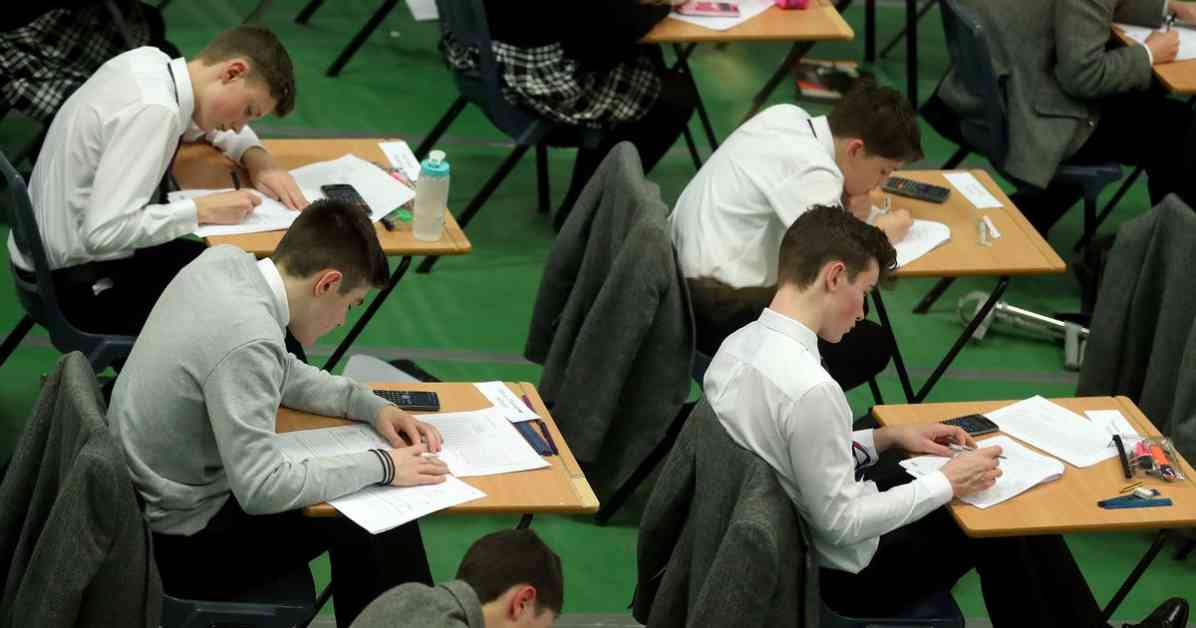Tens of thousands of A Level students across England, Wales, and Northern Ireland are anxiously awaiting the results of their exams, with education experts dubbing the 2024 cohort as one of the unluckiest in recent years. As these teenagers prepare to transition to university, apprenticeships, or employment, they are facing a myriad of challenges that have impacted their academic journey.
Challenges Faced by the 2024 Cohort
The cohort of students receiving their A Level results this year were in Year 9 when schools closed due to the pandemic. They were also the first group to sit GCSE exams in 2022 after they were canceled for two consecutive years. This disruption to their education has had a significant impact on their academic progress and overall well-being.
Lee Elliot Major, professor of social mobility at the University of Exeter, highlighted the challenges faced by this cohort, stating, “In many ways, this is one of the unluckiest cohorts to emerge in the post-pandemic era – blighted by Covid disruption, a cost-of-living crisis, and the national crisis of unfit school buildings.” He emphasized that students from disadvantaged backgrounds have been hit the hardest by these challenges.
Impact of Raac Crisis on Education
Just days before the start of the academic year last year, several schools were forced to offer remote learning due to the discovery of reinforced autoclaved aerated concrete (Raac) in their buildings. This crisis further exacerbated the difficulties faced by students, particularly those from disadvantaged backgrounds.
Pepe Di’Iasio, general secretary of the Association of School and College Leaders (ASCL), expressed concern about the potential disadvantage faced by students in Raac-affected schools. He emphasized the need for recognition of the challenges these students have overcome and called for support from the education system.
Support for Students Affected by Raac Disruption
The Department for Education (DfE) has identified 234 education settings in England with Raac in their buildings, with a significant number of them being secondary schools and post-16 colleges. Schools and colleges have the option to apply for “special consideration” if they believe their results have been negatively affected by Raac disruption during the exam series.
Mr. Di’Iasio stressed the importance of providing support to students who have faced adversity due to Raac or other challenges. He urged universities, schools, and colleges to make allowances for these young people and ensure they receive the necessary support to pursue their academic and career goals.
Government Response and Call for Equity in Education
Education Secretary Bridget Phillipson commended young people for their resilience in the face of disruptions and inequalities. She emphasized the government’s commitment to breaking down barriers to opportunity and ensuring that every young person can pursue their dreams and succeed.
Ofqual’s Expectations for 2024 A Level Results
Last year, the UK saw a decrease in the proportion of A-level entries awarded A or A* grades compared to 2022. However, the figures were higher than in 2019, the last year before the pandemic. In England, Ofqual expects this year’s national results to be similar to last year, while Wales and Northern Ireland aim to return to pre-pandemic grading standards.
Students may face less competition for university places this year, as there has been a decline in the proportion of UK school leavers applying to higher education and a decrease in overseas demand. This shift could benefit students navigating the post-exam transition period.
Opportunities in UCAS Clearing
As A-level results are announced, students have the option to explore opportunities through UCAS Clearing. This process allows students who did not meet their offer conditions or did not receive any offers to find available courses for undergraduate study. It also caters to those who have changed their preferences or applied outside the regular application window.
Rebecca Montacute, head of research and policy at the Sutton Trust charity, highlighted the challenges faced by students from disadvantaged backgrounds, including the loss of in-person teaching, lack of resources, and limited social interaction. She emphasized the need for continued support for these students as they navigate their academic journey.
Conclusion
The 2024 A Level cohort has faced unprecedented challenges, from the disruptions caused by the pandemic to the Raac crisis in schools. As students receive their exam results and prepare for the next phase of their education or career, it is crucial for the education system to provide support and opportunities for all young people, particularly those from disadvantaged backgrounds. By recognizing the resilience and determination of these students, we can create a more equitable and inclusive environment for future generations.





















